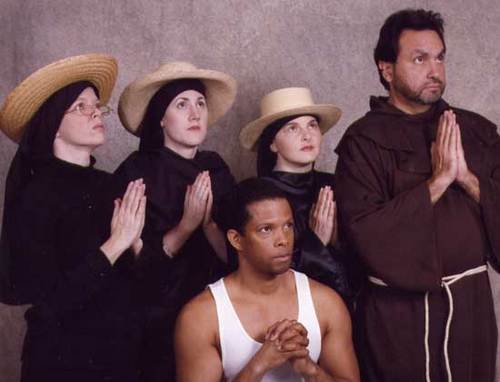Words: 336
[Essay]
When I was 27, my library began to offer movies in a conference room on an upper floor. Chairs were set out facing a screen, and some of the movies were captioned. This weekly event was also free. At that time television shows were not captioned.
This became my secret mid-week adventure. Each week I would preview the library's schedule of movies. On the day and hour appointed I would climb the back stairs to the room where the viewings were held and quietly take a seat. And so I enjoyed movies like The Lilies of the Field,

which I had previously seen without dialogue. On these movie nights, I would talk to no one, bring no one with me, but would steal in, and then when the movie concluded, steal away like a shadow.
As a child I sat through countless hours of dialogue-less TV viewing. In public school I spent many mindless hours viewing educational classroom films with voice narration. Of course I could understand none of this. My classmates' conversation was peppered with mysterious references to those things they heard on television; bits of dialogue, some clever joke or repartee.
In The Lilies of the Field

the black man Homer listens to the nuns' English lesson, an inappropriate sound tape wherein someone orders a valet to fetch luggage, something the nuns, poor and living in a remote rural area, were not ever likely to do. Homer notes that the nuns parrot this nonsense, including in their pronunciation all of the noises from the turntable on the old phonograph they are using. When someone suggests Homer could teach them English instead, the black man retorts, "It might get you discriminated against!"
Homer knew the power of words, knew moreover that how a word was said might even be more meaningful than the word itself. The Lilies of the Field

gave me a vicarious thrill, and like Homer, I drove off alone, having had an experience I could not share with anyone I then knew.
=====
This piece first appeared in The Tactile Mind Weekly.


